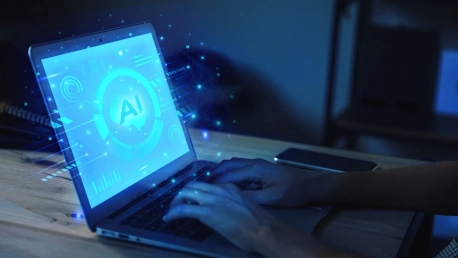As we head toward 2024, the technology sector is gearing up to initiate a fresh period of innovation, set to remarkably alter the employment landscape. With technological progress moving swiftly, new opportunities and challenges await workers in various industries. To remain employable, professionals must cultivate a versatile skill set aligned with the future’s most promising technological arenas. This piece delves into the key tech trends expected to emerge by 2024, exploring how they might generate new jobs while also transforming existing ones.With the advent of these trends, the framework of our daily lives and professional interactions is on the cusp of significant change. Artificial intelligence, machine learning, and automation continue to be at the forefront, likely leading to both job displacement and the creation of roles that demand new expertise. Additionally, advancements in fields like biotechnology, renewable energy, and quantum computing are set to rewrite the job market’s story. Understanding and preparing for these shifts is crucial for workers seeking to navigate the future job market successfully.By embracing these technological shifts, individuals and organizations can position themselves advantageously within the evolving job market. Continuous learning and flexibility will become increasingly important as the technology-driven world opens new horizons for growth and efficiency in the workplace.
The Rise of Generative AI and Computational Power
The advent of generative AI has opened the floodgates to a myriad of possibilities in content creation, design, and more, setting the stage for a surge in employment within these dynamic fields. As machines become increasingly capable of mimicking human creativity, novel professional roles are expected to emerge, aimed at harnessing this power to innovate and enhance various industries. This trend not only beckons AI researchers but also creative minds who can collaborate with AI to push the boundaries of art, marketing, and entertainment.On the other side of the spectrum lies the transformation in computing power. The leap toward 6G technology promises to deliver faster, more reliable, and more pervasive networks, which will underpin the next generation of digital services. Data scientists and robotics experts, in particular, will find their skills in higher demand as they work to exploit the vast amounts of data and enhanced connectivity facilitated by these advancements. The potential applications are vast, from smart cities and autonomous vehicles to sophisticated wearables and IoT devices.
Smart Devices and The Automation of Everyday Life
Smart devices have become ubiquitous, their intelligence weaving into the fabric of our daily existence and driving demand for professionals who can design, deploy, and maintain these sophisticated systems. As the automation of everyday life continues to gain momentum, the impact on jobs is twofold: on one hand, it gives rise to occupations centered around developing and improving these smart technologies; on the other, it necessitates the evolution of existing roles to incorporate an understanding of these automated systems.Datafication, meanwhile, ensures that every action and task is captured and utilized to fuel data-driven technologies. This opens up a world of possibilities for data professionals. Jobs in analytics, data management, and data security are expected to proliferate, spanning diverse industries from healthcare to finance, retail to urban planning. The skills required will not just be technical but also analytical, with a strong emphasis on how insights drawn from data can be applied to real-world scenarios.
Artificial Intelligence and Machine Learning at the Helm
The prominence of AI and Machine Learning (ML) continues to grow, and with it, the job landscape evolves. Not only are new careers being spawned at the intersection of these technologies and various industries, but existing jobs are also undergoing substantial metamorphosis. AI and ML are not just tools for automation; they are also reshaping jobs around data analysis, user experience, and even ethical considerations surrounding technology.The capabilities of AI extend beyond routine tasks to include sophisticated decision support and predictive modeling. These offerings are poised to influence the decision-making processes within corporations and governments, putting a premium on professionals who can interpret AI-generated insights and integrate them into strategic planning and policy development. Data analysts, in particular, will need to hone their ability to work alongside AI, ensuring that human intuition and contextual understanding balance computational insight.
Extended Reality and Digital Trust Shape the Experiential World
Extended Reality (XR), encompassing Virtual Reality (VR), Augmented Reality (AR), and Mixed Reality (MR), is rapidly transitioning from novelty to necessity in fields as divergent as gaming, education, real estate, and healthcare. The immersive experience provided by XR technologies has created a burgeoning job sector seeking individuals proficient in content creation, platform development, and user experience design, as they endeavor to bridge the gap between digital and physical worlds.With the proliferation of digital platforms comes an increasing need for Digital Trust, cementing the fundamental role of cybersecurity in safeguarding online ecosystems. As public reliance on digital transactions and interactions intensifies, so does the need for cybersecurity professionals who can protect data, manage privacy concerns, and build resilience against cyber threats. Employment in this sector is expected to span from ethical hackers and security analysts to policy advisors and compliance officers, all dedicated to reinforcing the integrity and trustworthiness of digital infrastructure.









